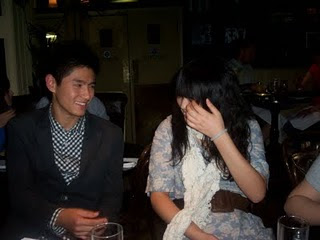The idea, basically, is that your thoughts are like magnets: bad thoughts create bad situations and good thoughts create happiness, success, wealth and prosperity.
You may believe this to be true.
Some say the theory dates back to 3,000BC. Legend has it William Shakespeare and Julius Caesar believed in the law of attraction. There are many others who will swear blind that the power of positive thought bought love, riches, happiness and abundance into their lives...
Me - I'm not sure about it.
It just seems a bit too... nebulous.
I don't believe that concentrating your thoughts on something is enough to make it happen (or not happen).
In my experience, positive results require ACTION.
But hey-ho.
If it works for some people, then fine. Having a positive outlook on life is never a bad thing, so you won't find me heaping too much scorn on the law of attraction or its advocates.
In any case, whether you believe in it or not is largely irrelevant to today's email. I bring it up merely to highlight the proven profit power of something else...
*******************
Public domain material
*******************
Come on - keep up!
You can make a fair bit of money online selling other people's products on a commission basis.
Your cut can sometimes be as much as 40-50%, net of shipping costs.
But if you sell your OWN product, 100% of the profit is yours.
That's where the real money is. But there's a problem: how do you go about writing your own eBook, producing your own 12-part home study course, or burning and duplicating your own CDs?
Where are you supposed to find the time to sit down and do all that? Isn't it simpler to sell other people's stuff - ready-made products - on a 'cut-of-profits' basis?
Well, yes... but you'll never make really good money doing that.
So what if there were a way to sell someone else's hard work AND keep all the cash yourself?
"Who in their right mind would let you do that?" You ask.
Someone who has been dead for 70 years, I reply.
I'm talking, of course, about works that exist in the public domain.
Public domain is a term that describes literary, musical, artistic and educational works that are no longer - or never were - protected by copyright.
It might be that they were created before copyright law was introduced... or they may have fallen into the public domain because their 70-year copyright term (73 years in the US) has expired.
Because these works are not protected by copyright law anyone can take them, reproduce them, modify them and sell them without paying a penny in royalties and without having to credit the original author or creator.
This is exactly what Australian TV presenter Rhonda Byrne did in 2004.
*****************************************
This secret made one woman $40million in 2 years
*****************************************
Rhonda found a 1910 book called The Science of Getting Rich, by Wallace Wattles in the public
domain.
The book was all about the law of attraction, and how you can use it to bring wealth, happiness and abundance into your life, simply by concentrating your thoughts appropriately.
As the book had fallen out of copyright, Rhonda was free to take it, use it, reproduce it and sell it, in any way she wanted.
She did just that - and a few months later, the global phenomenon known as "The Secret" was born. First, as an Internet-only pay-per-view film, which became a huge viral / underground hit. Then as a book, which has now been printed in 38 different languages. There are further spin-off books and movies in the pipeline.
It's been reported that the success of "The Secret" book, online film and DVD made its creator Rhonda Byrne around $40million in two years.
In 2007, Byrne was listed among Time Magazine's list of '100 people who shape the world'.
Not bad when you consider all of this came from a book she found in the public domain that had fallen out of copyright!
Now I'm sure Rhonda has worked extremely hard for her success. She's a very clever lady. She has repackaged Wallace Wattle's work very well - the marketing for her products is extremely slick, and she's acquired quite a following.
But the point is: she didn't create this work from scratch. She re-interpreted it and repackaged it.
****************
Nico can do this, too
****************
If the idea of making money on the Internet excites you - but you don't have either the time or talent to create your own product to sell, this is virtually on a plate for you.
There's a huge stockpile of public domain works available; hundreds of thousands of books, articles and pages there for the taking... and this cache grows daily.
Whatever kind of information product you want to create: fitness, investing, gardening, self-help, knitting, pets, you name it; there's a huge stash of ready-made content online that you can grab for
nothing, republish on the Internet in whatever format you'd like, sell on as many times as you like for as much money as you like - and, best of all, pocket all the profit!
The information is all there for you. You just need to know what to do with it. Here are three
suggestions - they may not make you the same money as "The Secret" has made for Rhonda Byrne, but we've all got to start somewhere...
1) You could update and rewrite the book, and sell it online - through a website, through affiliate
marketers or through an email, if you have an email list.
2) You could break the work up into chapters and sell each chapter as an eBook / report ... or the
whole thing as a multi-part home study course
3) You could even record yourself reading the book out chapter by chapter - then create a set of audio CDs you can sell as a home study course.
Of course there's some work involved whatever you decide to do - but it's a lot less hassle than having to write the whole thing yourself, from scratch.
A great starting point for finding free-to-reproduce work is Google. Type in "Public Domain books" and hit search.
Or you can visit one of the specialist online public domain depositories. The most famous of these is "Project Gutenberg" - named after the doe-eyed actor from the Police Academy films.
Not really... it's actually named after Johannes Gutenberg, the fifteenth century German printer who propelled the movable type printing press revolution - you knew that, didn't you?
You can visit the Project Gutenberg website by clicking here
A word of advice though - check the copyright laws VERY carefully before you start copying and pasting huge swathes of someone else's work.
Laws governing when works fall out of copyright differ from country to country - so make sure you know where you stand before you re-publish any work.












